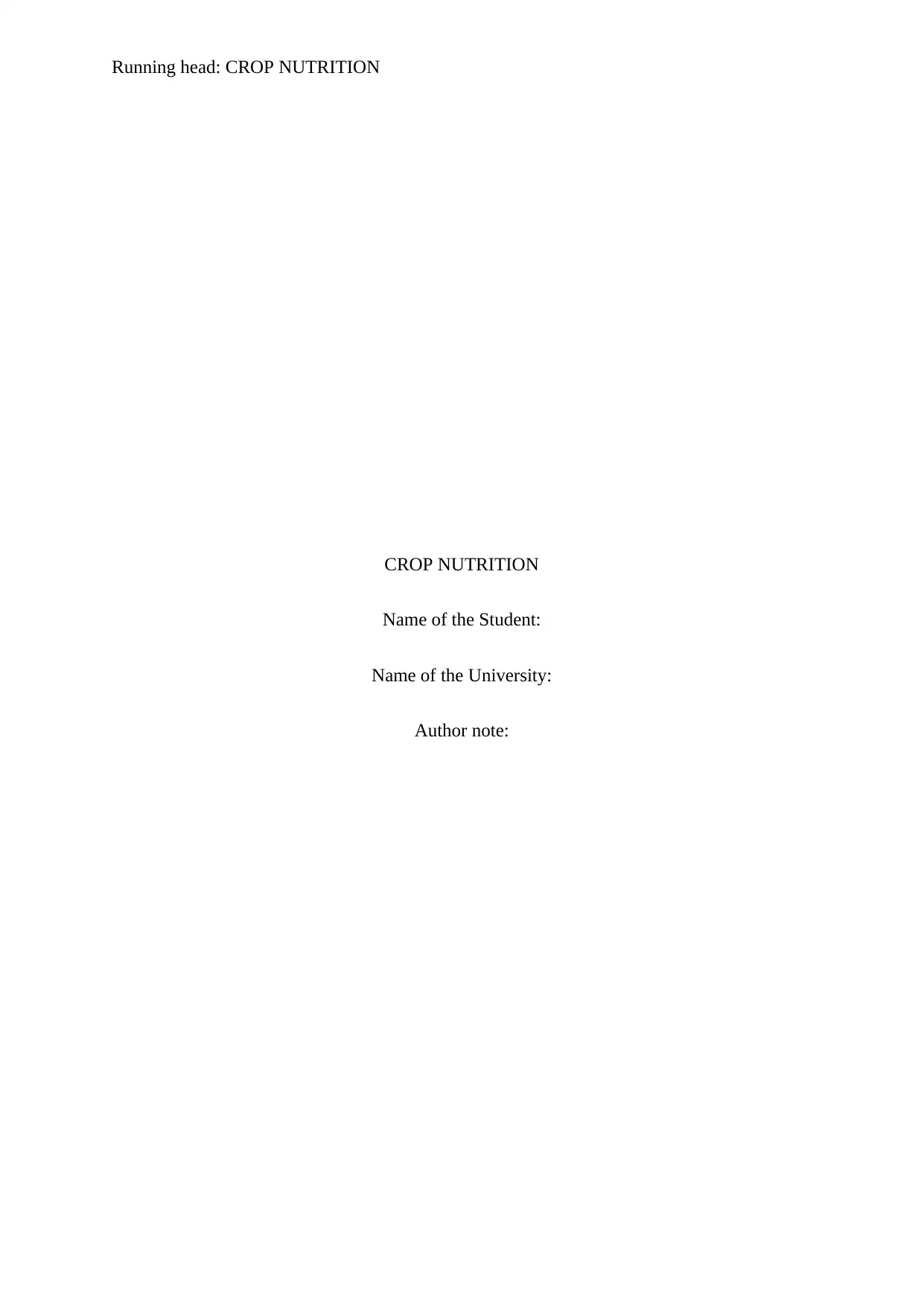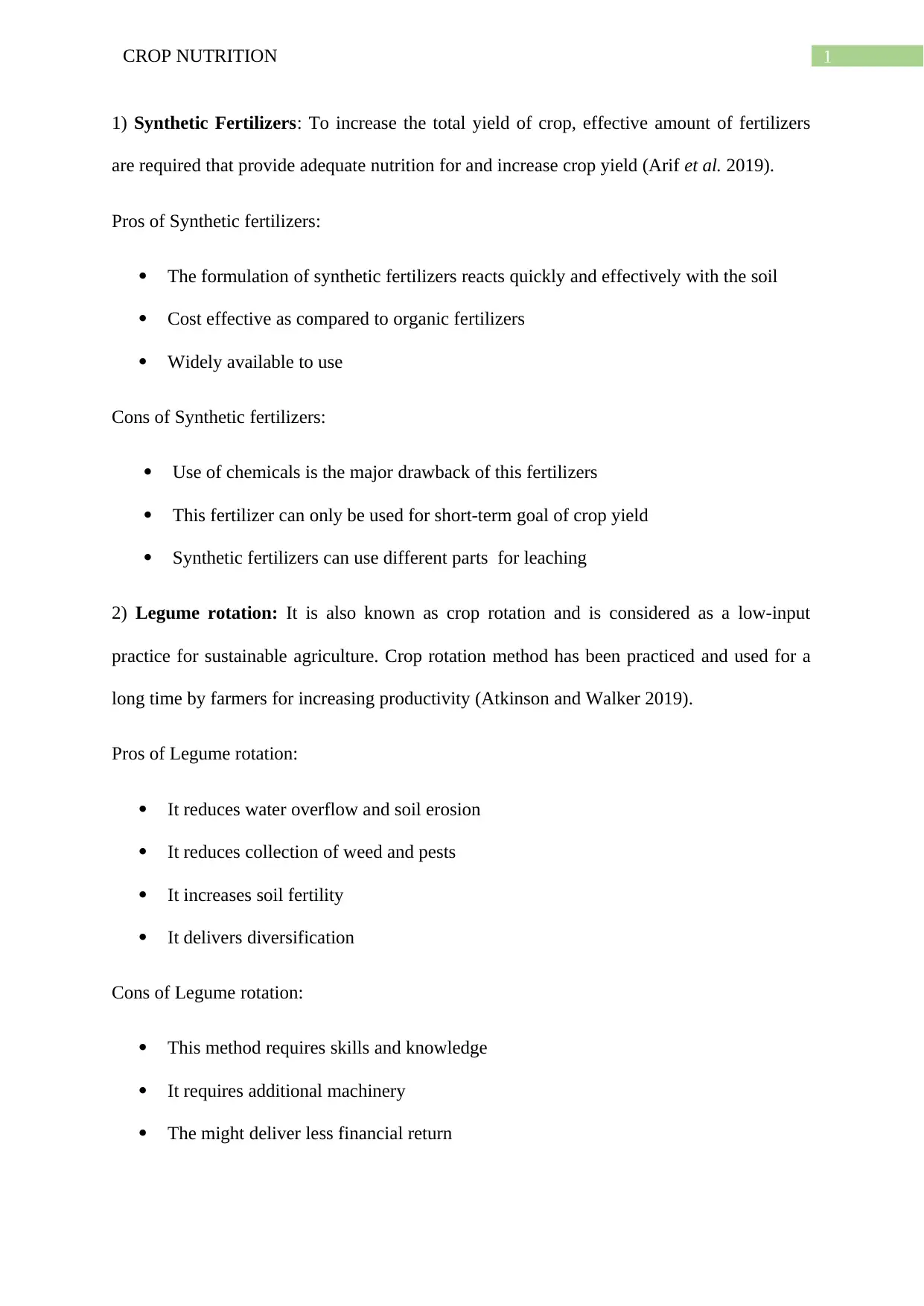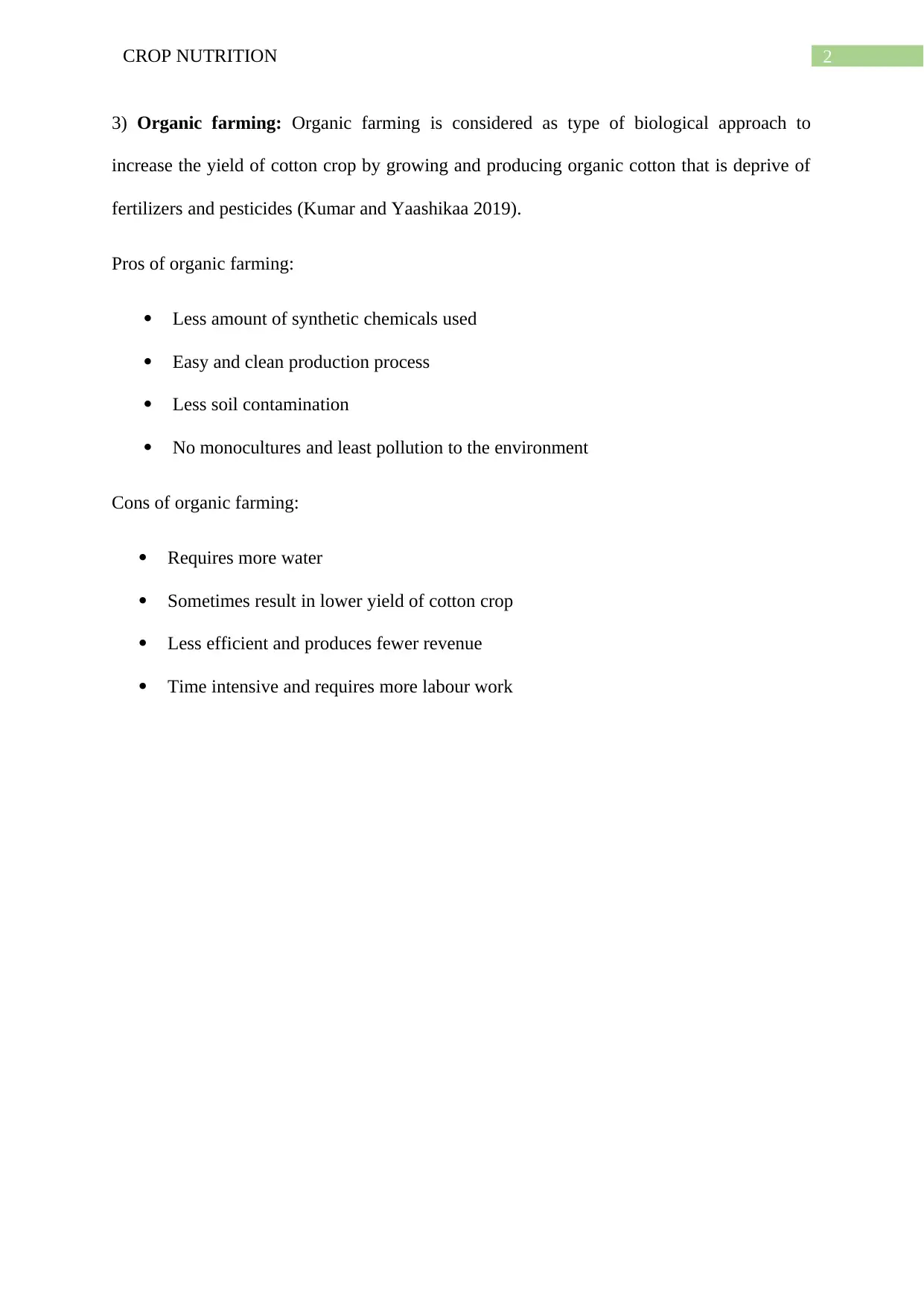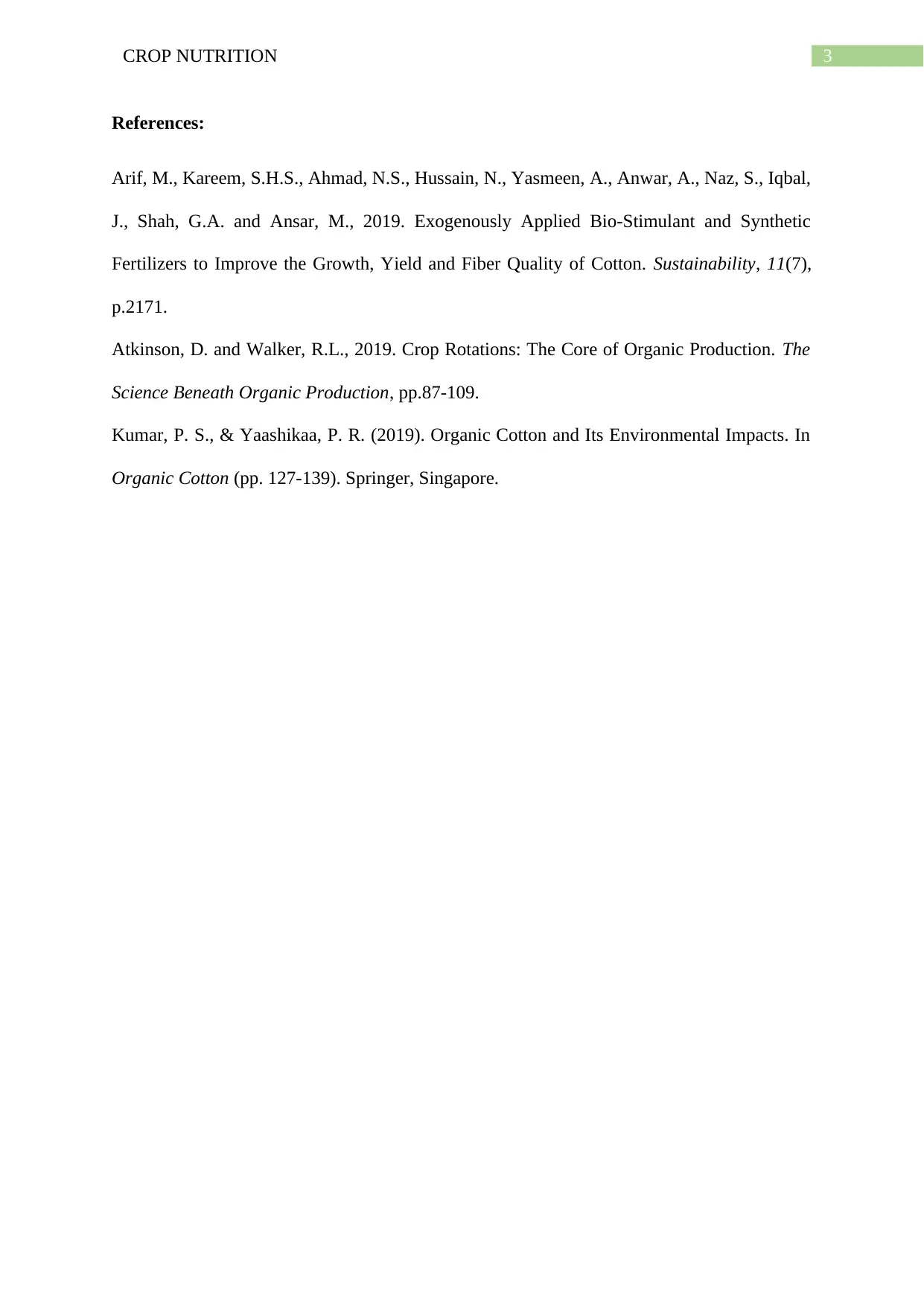Analysis of Crop Nutrition: Organic Farming, Fertilizers & Legume Use
VerifiedAdded on 2023/01/23
|4
|473
|80
Essay
AI Summary
This essay examines different approaches to crop nutrition, focusing on synthetic fertilizers, legume rotation, and organic farming. Synthetic fertilizers are noted for their quick and cost-effective nutrient delivery, though they pose environmental risks due to chemical use and potential leaching. Legume rotation, a sustainable agricultural practice, enhances soil fertility, reduces erosion, and diversifies crops, but requires specific skills and may offer lower financial returns. Organic farming, emphasizing biological methods, minimizes synthetic chemical use and soil contamination, though it can be more water-intensive and may result in lower crop yields. The essay references studies highlighting the pros and cons of each method in the context of sustainable agriculture and crop productivity, particularly for cotton crops. Desklib offers a range of study tools and resources for students exploring topics like crop nutrition and sustainable agriculture.
1 out of 4










![[object Object]](/_next/static/media/star-bottom.7253800d.svg)